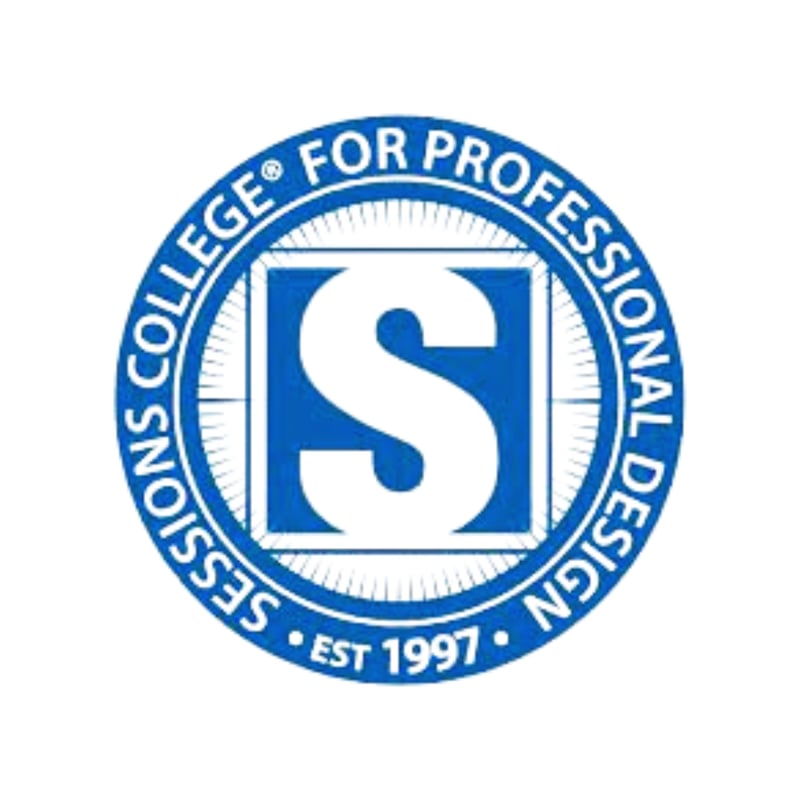How to Become a Digital Marketer in Kentucky

Want personalized recommendations?
Let's match you to the right program

Digital marketing is a field that encompasses various online marketing strategies and tactics to promote products, services, and brands. Digital marketers are responsible for creating and implementing marketing campaigns across digital channels to drive customer engagement and increase brand visibility. Their main goal is to reach and attract the target audience, generate leads, and ultimately drive conversions.
Article continues after recommendations
Recommended for you
Responsibilities of a Digital Marketer
- Developing and implementing digital marketing strategies
- Conducting market research and analyzing customer behavior
- Managing social media accounts and creating engaging content
- Optimizing website content for search engines
- Creating and managing online advertising campaigns
- Monitoring and analyzing campaign performance using analytics tools
- Collaborating with other departments to align marketing efforts
Where does a Digital Marketer work?
Digital marketers can work in various industries and organizations, including:
- Advertising agencies
- Marketing departments of companies
- E-commerce businesses
- Digital marketing agencies
- Freelancing or consulting
The work environment can vary depending on the organization and the specific role. Some digital marketers may work remotely or have flexible working hours.
How to Become a Marketer in Kentucky?
To become a Marketer in Kentucky, one must first obtain a relevant education, such as a bachelor's degree in marketing, advertising, or a related field. Next, they should consider earning professional certifications, such as the Certified Digital Marketer (CDM) or the Certified Content Marketer (CCM) credential. Once certified, they can then search for marketing job opportunities in Kentucky.
Requirements to Become a Digital Marketer in Kentucky
To pursue a career in digital marketing in Kentucky, you will need a combination of education and skills. The specific requirements may vary depending on the employer and the role, but here are some general requirements:
- Education: A bachelor's degree in marketing, business, communications, or a related field is often preferred. However, some employers may consider candidates with relevant work experience or certifications.
- Digital Marketing Skills: Knowledge of various digital marketing channels and tactics, such as social media marketing, search engine optimization (SEO), content marketing, email marketing, and paid advertising, is essential.
- Analytical Skills: Digital marketers need to be able to analyze data, track campaign performance, and make data-driven decisions to optimize marketing strategies.
- Communication Skills: Strong written and verbal communication skills are crucial for creating engaging content and effectively communicating with team members and clients.
In addition to these requirements, it is important to stay updated with the latest trends and technologies in the digital marketing industry.
Finding Digital Marketing Classes in Kentucky
If you are interested in pursuing a career in digital marketing and want to enhance your skills, Dreambound is the largest platform for students to find and compare vocational training programs. They offer a comprehensive digital marketing training program that covers various aspects of digital marketing, including SEO, social media marketing, content marketing, and more.
By visiting Dreambound, you can explore their digital marketing training program in Louisville-Jefferson County, Kentucky. Their program provides hands-on experience, industry-relevant curriculum, and expert instructors to help you gain the necessary skills and knowledge to become a successful digital marketer.
Remember, investing in your education and acquiring the right skills can greatly enhance your career opportunities in the digital marketing industry.
Exploring a Career in Digital Marketer Outside Kentucky
For anyone looking to become a Marketer but is in a different state, your opportunity to work as a Marketer might be found in Connecticut, Indiana, North Dakota, Virginia, or Wyoming. Should these not be viable options, Dreambound eases the process of discovering and comparing Marketing classes with a search by zip code. With the drive to succeed and the support of resources like Dreambound, anyone can forge a successful path in business and office, no matter where they are.
How long does it take to become a Digital Marketer?
The time it takes to become a certified digital marketer varies based on the type of certification you pursue and your prior experience. Generally, you'll spend 1-2 weeks researching and planning your path, followed by 3-6 months of certification training in areas like SEO, social media, and analytics. After completing the coursework, it may take an additional 1-2 months to prepare for and pass the certification exam. Gaining practical experience through projects or internships, which can take 6-12 months, is crucial for applying your skills and building a portfolio. Ongoing learning is also essential to stay current in this ever-evolving field.
Get courses selected just for you
Try our powerful search engine
Article continues after recommendations
More recommendations for you
How do I get my Digital Marketing certification?
Digital marketing is a rapidly growing field that offers a wide range of career opportunities. Whether you are a recent graduate or a seasoned professional looking to switch careers, getting a digital marketing certification can be a great way to enhance your skills and increase your chances of landing a job in this industry.
There are several ways to obtain a digital marketing certification. Here are some of the most popular options:
-
Online courses: Many reputable online platforms offer digital marketing courses that provide certification upon completion. These courses cover various aspects of digital marketing, such as search engine optimization (SEO), social media marketing, content marketing, email marketing, and more. Some popular online course providers include Coursera, Udemy, and HubSpot Academy.
-
University programs: Many universities offer digital marketing programs that can lead to a certification or a degree. These programs often provide a comprehensive curriculum that covers all aspects of digital marketing. Some universities even offer online programs, making it easier for working professionals to pursue a certification while balancing their other commitments.
-
Professional associations: There are several professional associations that offer digital marketing certifications. These certifications are often highly regarded in the industry and can help you stand out from the competition. Some notable associations that offer digital marketing certifications include the Digital Marketing Institute and the American Marketing Association.
Before choosing a certification program, it is important to consider your goals, budget, and time commitment. Online courses are often more affordable and flexible, while university programs and professional certifications may require a larger investment of time and money. Additionally, it is important to research the reputation and credibility of the certification program before enrolling to ensure that it will be recognized by employers.
How do I get a job as a Digital Marketer?
Once you have obtained your digital marketing certification, the next step is to start looking for job opportunities in the field. Here are some tips to help you land a job as a digital marketer:
-
Build a strong online presence: Employers in the digital marketing industry often look for candidates who have a strong online presence and are active on social media platforms. Create professional profiles on platforms such as LinkedIn and Twitter, and showcase your knowledge and expertise by sharing relevant content and engaging with industry influencers.
-
Gain practical experience: While certifications are valuable, practical experience is equally important. Look for internships, freelance projects, or volunteer opportunities that will allow you to gain hands-on experience in digital marketing. This will not only help you build your portfolio but also demonstrate your commitment and passion for the field.
-
Network: Networking is a crucial aspect of finding job opportunities in any industry, and digital marketing is no exception. Attend industry events, join professional associations, and connect with professionals in the field. Building relationships with industry insiders can help you stay updated on job openings and increase your chances of getting referrals.
-
Tailor your resume and cover letter: When applying for digital marketing positions, it is important to customize your resume and cover letter to highlight your relevant skills and experiences. Use keywords from the job description and showcase your achievements in previous roles, such as increasing website traffic or improving conversion rates.
-
Showcase your digital marketing skills: Employers often look for candidates who have a strong understanding of various digital marketing tools and platforms. Make sure to include any relevant certifications, courses, or projects that demonstrate your proficiency in areas such as SEO, Google Analytics, social media management, and content creation.
-
Stay updated on industry trends: Digital marketing is a constantly evolving field, and employers value candidates who stay updated on the latest trends and best practices. Subscribe to industry blogs, attend webinars, and participate in online forums to stay informed and showcase your knowledge during job interviews.
Remember that landing a job in digital marketing may take time and persistence. Be proactive in your job search, continuously improve your skills, and stay positive throughout the process.
Career Paths and Opportunities after Becoming a Digital Marketer
Once you have obtained your digital marketing certification and landed a job in the field, there are numerous career paths and opportunities that you can explore. Here are some of the common career paths for digital marketers:
-
Digital Marketing Specialist: This role involves managing all aspects of digital marketing campaigns, such as SEO, content creation, social media marketing, email marketing, and paid advertising. Digital marketing specialists are responsible for developing and implementing strategies to improve brand visibility, drive website traffic, and generate leads.
-
Social Media Manager: Social media has become an integral part of digital marketing, and many companies hire dedicated social media managers to oversee their social media presence. Social media managers are responsible for creating and implementing social media strategies, managing social media accounts, engaging with followers, and analyzing social media metrics.
-
SEO Specialist: Search engine optimization (SEO) is essential for improving website visibility and driving organic traffic. SEO specialists are responsible for optimizing website content, conducting keyword research, analyzing website performance, and implementing SEO strategies to improve search engine rankings.
-
Content Marketing Manager: Content marketing involves creating and distributing valuable content to attract and engage target audiences. Content marketing managers are responsible for developing content strategies, managing content creation and distribution, and analyzing content performance to drive website traffic and generate leads.
-
Digital Marketing Analyst: Digital marketing analysts analyze data and metrics to measure the effectiveness of digital marketing campaigns and provide insights for improvement. They use tools such as Google Analytics and social media analytics to track website traffic, user behavior, and campaign performance.
-
E-commerce Manager: E-commerce managers are responsible for managing online sales channels and optimizing the online shopping experience. They oversee website development, product listings, pricing strategies, and promotional campaigns to drive sales and maximize revenue.
These are just a few examples of the many career paths available in digital marketing. As you gain experience and specialize in specific areas, you can explore more advanced roles such as digital marketing director, marketing automation specialist, or digital strategist.
How Much does a Digital Marketer Make?
The average salary for a digital marketer can vary depending on factors such as location, experience, industry, and company size. According to the BLS as of May 2022, the average median annual wage for a digital marketer, categorized under Market Research Analysts and Marketing Specialists, was $68,230. The lowest 10 percent earned $38,280, while the highest earned $131,850.
Final Thoughts
Obtaining a digital marketing certification can open up a world of opportunities in the exciting and fast-paced field of digital marketing. Whether you choose to pursue online courses, university programs, or professional certifications, investing in your digital marketing education can greatly enhance your skills and increase your chances of landing a job in this industry.
Once you have obtained your certification, it is important to continue learning and staying updated on the latest trends and best practices in digital marketing. This field is constantly evolving, and employers value candidates who are adaptable, creative, and willing to embrace new technologies and strategies.
By building a strong online presence, gaining practical experience, networking, and showcasing your digital marketing skills, you can increase your chances of landing a job as a digital marketer. Once you have started your career, there are numerous career paths and opportunities available to explore, allowing you to continue growing and advancing in this exciting industry.
So, what are you waiting for? Start your digital marketing journey today and unlock a world of opportunities in this dynamic field.
Dreambound offers a window into various career paths, so if you're considering a shift in your career, browse through these articles:





